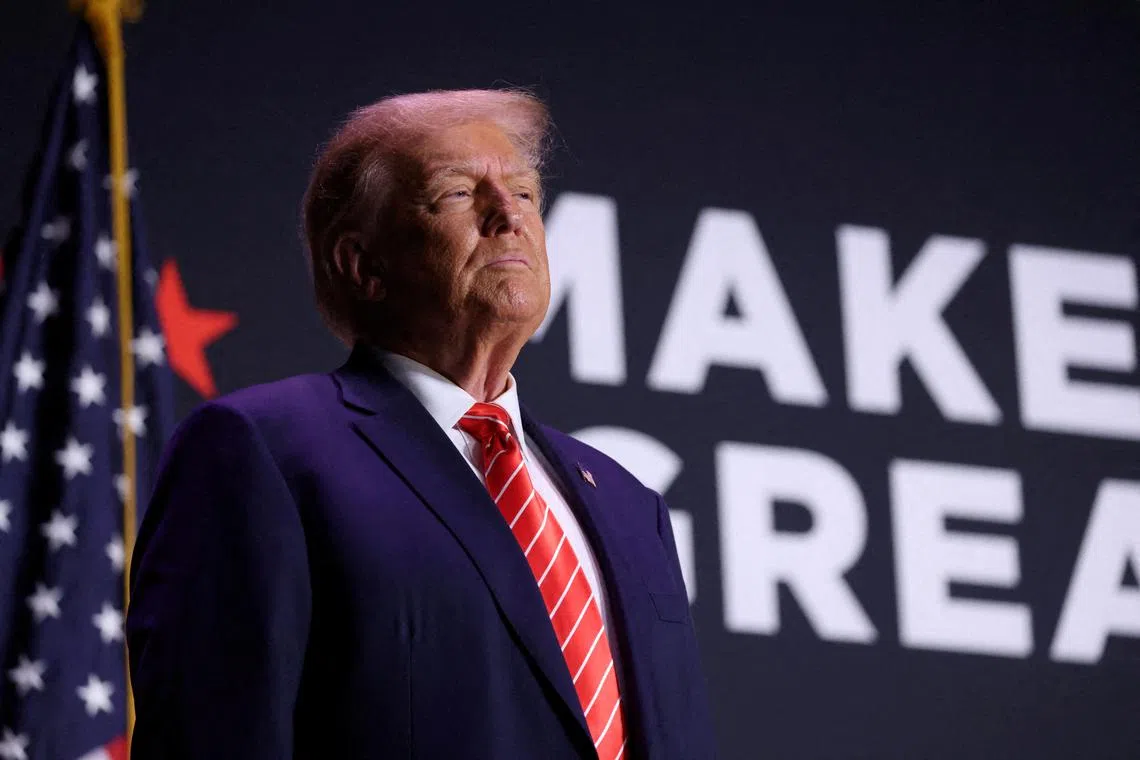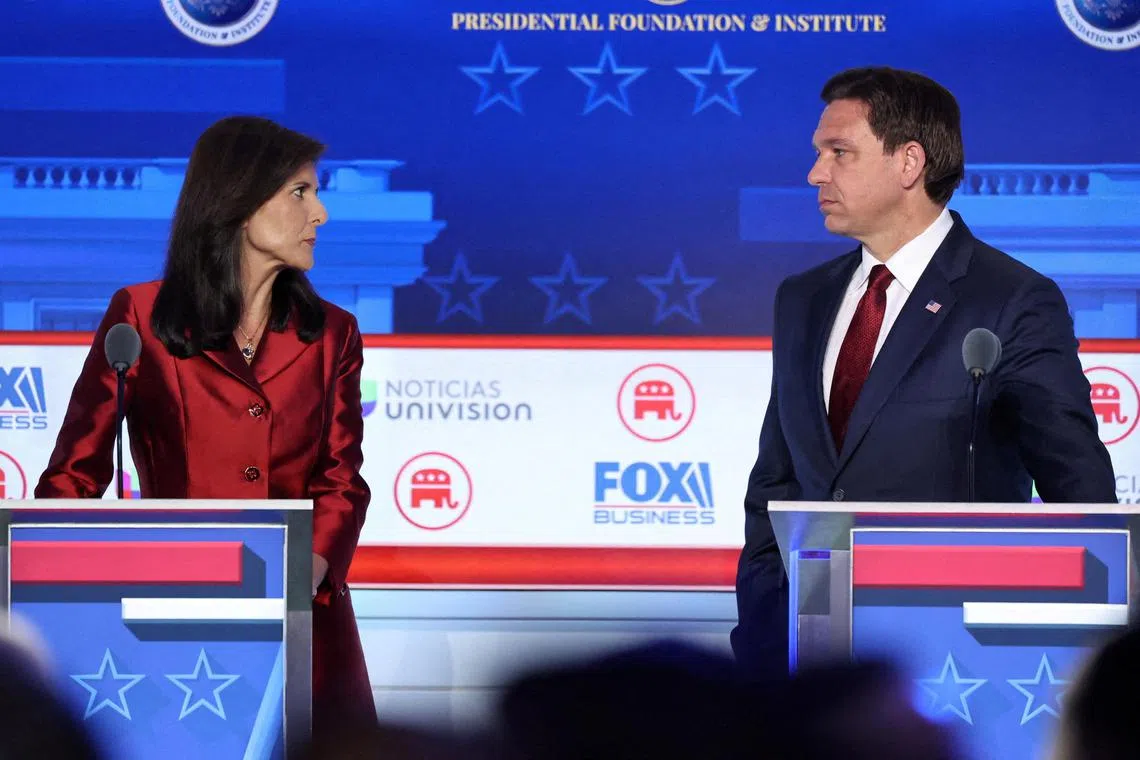Trump’s rivals tie him to Republican election losses ahead of debate
Sign up now: Get ST's newsletters delivered to your inbox

Republican frontrunner Trump is skipping Wednesday’s debate, as he did the first two, and will hold a rival event close by.
PHOTO: REUTERS
Follow topic:
MIAMI - Donald Trump’s rivals for the Republican presidential nomination tried to tie him to the party’s disappointing showing in a string of local elections,
Trump’s rivals seized on a series of Republican defeats in state elections on Tuesday night to make the case that the party needed new leadership – with some outright blaming Trump for the poor results -– as they assembled in Miami.
Frontrunner Trump is skipping Wednesday’s debate, as he did the first two, and will hold a rival event close by.
An intensifying rivalry between Florida Governor Ron DeSantis and former South Carolina governor Nikki Haley could dominate the debate, as the two presidential hopefuls seek to present themselves as their party’s best alternative to Trump.
Ms Haley, 51, in third place nationally, has grown stronger as she seeks to dislodge Mr DeSantis, 45, from his distant second place.
The debate, in Miami, begins at 8pm ET (9am on Thursday, Singapore time).
With the first Republican state nominating contest in Iowa little more than two months away, Trump’s rivals are running out of time
On Tuesday, Democrats and abortion rights advocates notched a string of electoral victories, including in Kentucky, Ohio and Virginia.
In Kentucky, a Republican who was endorsed by Trump handily lost the governor’s race on Tuesday, in a contest many had predicted would be close.
Mr DeSantis has previously blamed Trump for disappointing election results in the 2022 midterm congressional elections.
Mr DeSantis’ campaign said in a statement: “Last night’s disappointing results show why Republicans need a winner to lead the future of the party.”
Ms Haley sounded a similar note: “After Republicans suffered big losses in the 2022 midterms, the pattern continues one year later.”

Former South Carolina governor Nikki Haley and Florida Governor Ron DeSantis are seeking to present themselves as the Republican Party’s best alternative to Trump.
PHOTO: REUTERS
Former New Jersey governor Chris Christie, who will also be on the debate stage on Wednesday night, was more blunt.
He called Trump “electoral poison” for the party.
Trump, 77, has done his best to deny Ms Haley and Mr DeSantis a direct target, instead focusing on what he expects to be a rematch with Democratic President Joe Biden, 80.
In the two previous televised debates, Ms Haley and Mr DeSantis have been careful not to come down on Trump too hard for fear of alienating his supporters, whose backing they will need if they are to ultimately capture the Republican nomination in July.
The election is almost exactly a year away – Nov 5, 2024.
Running out of time
Mr Aaron Kall, an expert on presidential debates at the University of Michigan, said none of the five candidates on stage on Wednesday can afford to shy away from criticising Trump any longer.
“If they don’t try to pull Trump down, they are not going to achieve their objective,” he said.
Trump will hold a campaign rally a few miles away in the heavily Hispanic city of Hialeah. Hispanics are a voting group both parties will be courting heavily.
Ms Haley, a former United Nations ambassador, will be coming off two strong debate performances and has been the only Republican besides Trump to show recent momentum in early nominating states such as Iowa and New Hampshire.
With the month-old Israeli-Hamas conflict making headlines, the debate may afford an opportunity for Ms Haley to flash her foreign policy credentials.
While Mr DeSantis and Ms Haley hope to capitalise on strong debate performances, the debate could well fail to offer a turning point in what has been a race dominated by Trump from the start.
The three other debate participants – Mr Christie, businessman Vivek Ramaswamy and US Senator Tim Scott – will be trying to assert their relevance and find a path forward.
Mr Ramaswamy could well use the debate stage to promote his non-interventionist foreign policy, as he seeks to position himself as the least likely candidate to wade into a foreign war. REUTERS

